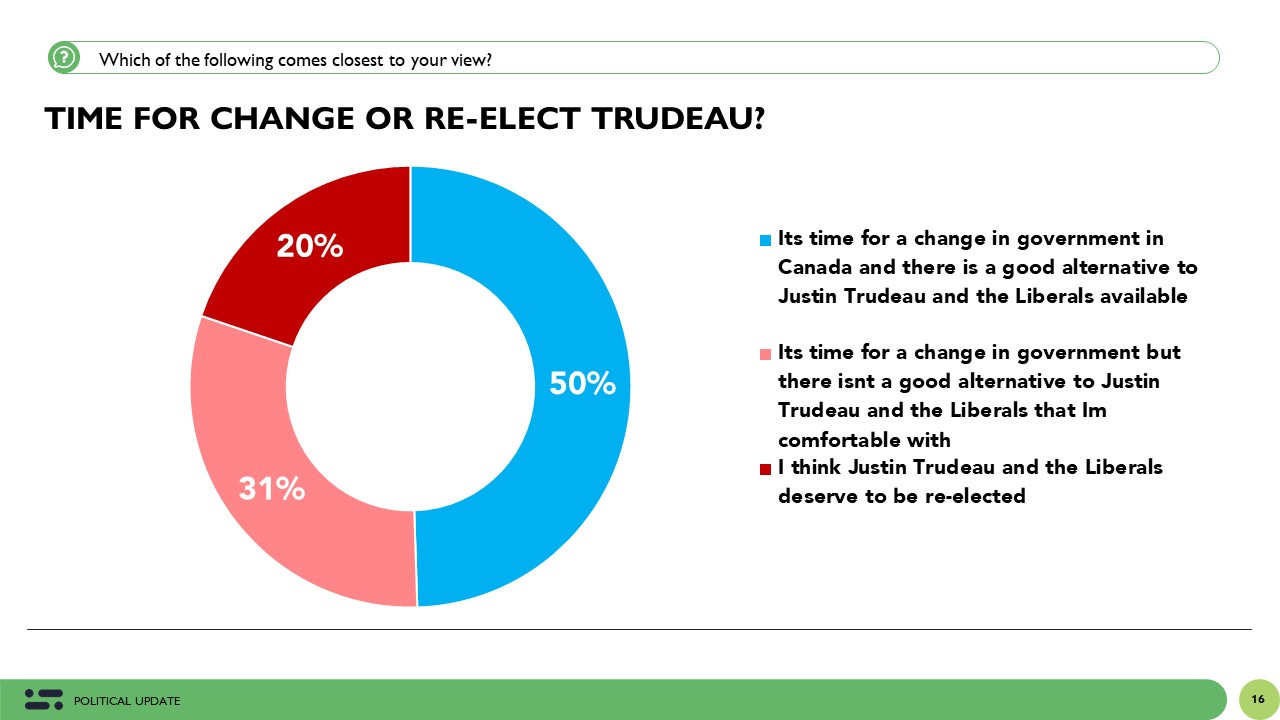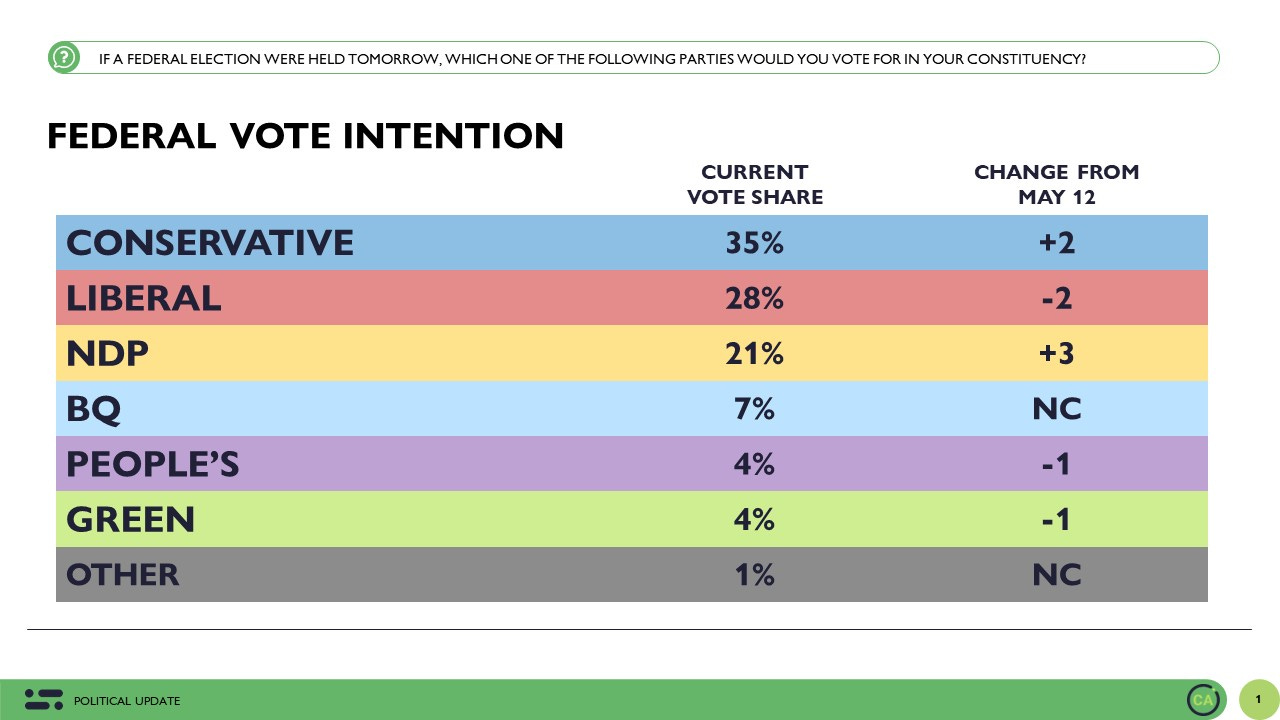The next federal election will be a change election.
But will voters actually feel comfortable with the options for change they have?
Earlier today, Abacus Data released a new national poll on the political opinions and choices of Canadians.
The survey, which included an oversample of Ontario residents, investigated the population's desire for political change and their comfort level with alternative parties.
An overwhelming majority (81%) of Canadians believe it's time for a change in government, with only 20% feeling that Justin Trudeau and the Liberals deserve re-election. However, among those demanding change, 31% express discomfort with the alternatives available to the Liberals.
Analyzing this group further, the survey found they are slightly more likely to be women than men (55% to 45%). Of these, 45% voted Liberal in 2021, 21% voted NDP, and 13% voted Conservative. Their political leaning is predominantly centrist (50%), left-leaning (36%), or right-leaning (14%). They have mixed views about Trudeau, with 28% having a positive impression, 41% negative, and 29% neutral. A significant proportion (27%) are currently undecided on their vote, which is higher than other groups.
Projecting these data onto the current scenario, if an election were held today, Conservatives would lead with 35%, Liberals at 28%, NDP at 21%, and BQ at 7% nationally.
The Conservatives are ahead in the Prairies, tied with NDP in BC, tied with Liberals in Ontario, and at 30% in Atlantic Canada. The Liberals are tied with the BQ in Quebec and lead in Atlantic Canada. The NDP has more support among younger voters, whereas the Conservatives lead among those aged 45 and over.
The general impression of party leaders remains largely unchanged. Justin Trudeau has a 30% positive impression with a 49% negative one. Pierre Poilievre's impressions are split at 32% positive and 40% negative. Jagmeet Singh remains the most popular with a 38% positive impression against 32% negative.
The Upshot
The opinion environment for the Liberal government is quite challenging. 80% of Canadians say they want change and only 20% think the government deserves to be re-elected.
Despite this, the Liberals are still competitive because about 1 in 3 Canadians who want change, don't feel there's an acceptable or comfortable alternative to the Liberals. Most of them are voting for an opposition party, if an election was held today, but not all of them. A third is sticking with the Liberals, despite wanting change.
This dynamic indicates a complex and nuanced political environment in Canada, reflecting a broad dissatisfaction with the current Liberal government, yet also a degree of apprehension about alternatives.
While it might seem like a grim outlook with 80% of the populace desiring change, the Liberals can find some solace in the fact that a notable fraction of those yearning for change still doesn't see a viable alternative. This can be seen as a testament to the government's relative stability or the perception of the Liberals as the lesser of multiple evils. However, this shouldn't invite complacency, rather it should serve as a wake-up call to address public discontent. The Liberals need to reexamine and realign their policies with public sentiment to re-establish trust and strengthen their electability.
For opposition parties, these results are both an opportunity and a challenge. The desire for change signifies widespread discontent, creating a political vacuum that they can fill. However, the inability of a substantial fraction of voters to identify a comfortable alternative underscores a failure on the opposition's part to present a compelling, viable vision for leadership. To capitalize on this scenario, opposition parties need to effectively communicate their policies, presenting clear, tangible alternatives to the current government's approach. The closer we get to an election, the more the acceptability of the opposition parties will be under scrutiny.
From a broader perspective, this situation illustrates a common dilemma in many democracies: the desire for change coupled with the fear of the unknown. While change is often seen as a positive, progressive force, it can also introduce uncertainty. When voters are unsure of the alternatives, they may opt for the status quo, even if they're dissatisfied with it. This dynamic can stagnate political landscapes and force a more polarizing, negative type of politics
You can access the full analysis here: https://abacusdata.ca/canadian-politics-polling-abacus-data-june-2023/






